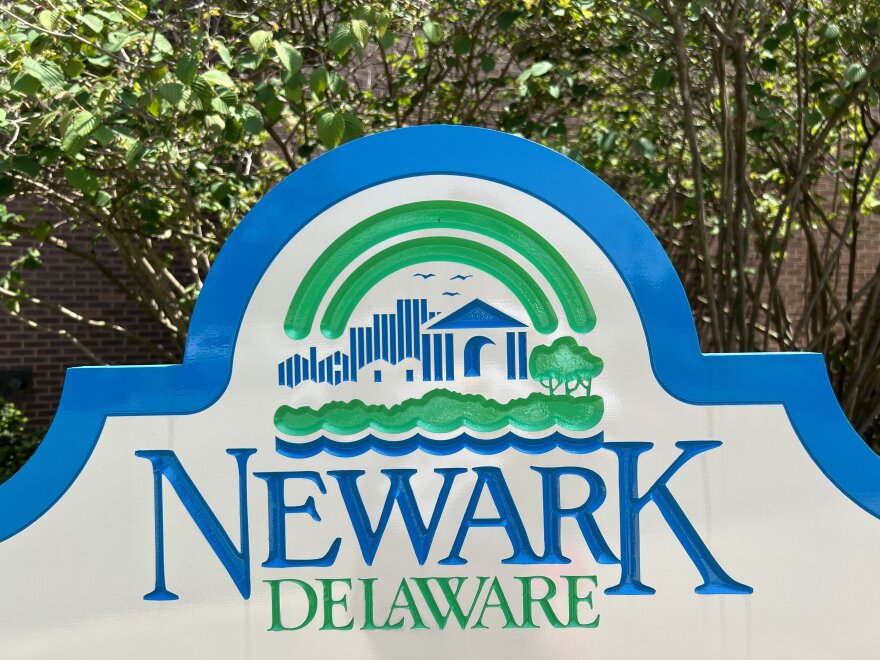The City of Newark passes its annual operating budget with a 7.5 percent tax hike.
The budget passed by a vote of 4-2, with Acting Mayor Travis McDermott and Councilman Jason Lawhorn voting against it.
The original proposal called for a 10 percent property tax hike, but City Manager Tom Coleman and Finance Director David Del Grande say they reduced it to 7.5 by changing two new employee positions, a bookkeeper and an administrative assistant, from full-time to part-time.
There’s also a 4.3 percent water rate increase and a 3.9 percent sewer rate increase.
“The budget we are adopting as proposed, the true immediate impact would be $85 per year since we do not know what the cost to purchase electric from DMEC will be for at least another month,” Del Grande says.
City Manager Tom Coleman says the city estimates a 4 percent increase in electric costs, or around another $52 per year for the average resident.
“So Dave and I have tried to guess what we think the wholesale rate is going to go up next year based on what we’ve heard throughout the year around what the markets are doing, what DMEC is doing, cash reserve needs in DMEC,” Coleman says.
The overall budget increased by 3 percent from last year for a total of $114 million. The property tax increase begins July 1, 2024, and will generate an additional $335,625 in 2024 and $671,250 in 2025 and after. The water and sewer increases begin Jan. 1 and will generate $690,000 more per year.
Capital projects total around $32 million, with about $3 million coming from city funding, the rest from reserves, grants and loans.
Councilman John Suchanec says while no one likes tax increases, Newark, by comparison, is providing a lot of services in exchange.
“If you went shopping, in and around the Newark area, I don’t think you would find a cheaper rate as far as taxes are concerned,” he says.
He adds, however, that he would like to see staff tie future increases to the cost of living in Newark.
Councilman Jason Lawhorn agrees that cost-of-living should be a reference throughout future budget processes to keep up with inflation.
Lawhorn says trash has yet to be addressed.
“Why can’t we treat it as utility?” Lawhorn says. “Is there a way to pseudo-treat it as a utility? It is a service that we have the best trash collection in the area and we pay the least for it, let’s tackle it hardcore in 2024.”
And once ARPA funds run out in 2025, Lawhorn says they’ll need to start considering a referendum.
Councilman Jay Bancroft says their budget trajectory is still problematic – noting they were conservative during the pandemic but now it’s time for growth to catch up with inflation.
A few council members expressed concern over two new parking enforcement officer positions, and how the city will determine if enforcement is offsetting the cost of their salaries. Coleman says these are ambassador-level positions that will help manage staff and improve retention – they anticipate an additional $170,000 in revenue from the two positions and $435,000 in permits and licenses.
Several members also raised concerns over lost revenue from the University of Delaware, which doesn’t pay property taxes, but students receive a lot of city benefits.
Acting Mayor Travis McDermott says he supports implementing a student fee from the university.
“The students, they drive on the road, they walk on the sidewalks, we’re talking about $100 million every 10 years to keep our sewer infrastructure up to date,” McDermott says. “All of those things benefit the university. If our pipes collapse, that’s an issue for everybody who lives here and works here. And so when we talk about what the students get, they get all of that.”
The ability to levy those new taxes would require approval from the state legislature, however, to amend the city’s charter.
McDermott also suggests revisiting a lodging tax on hotels in the area – ultimately he says the city has to start exploring other revenue streams. Council has also discussed an events tax for sports and concerts and a tax on revenue for rental housing.



